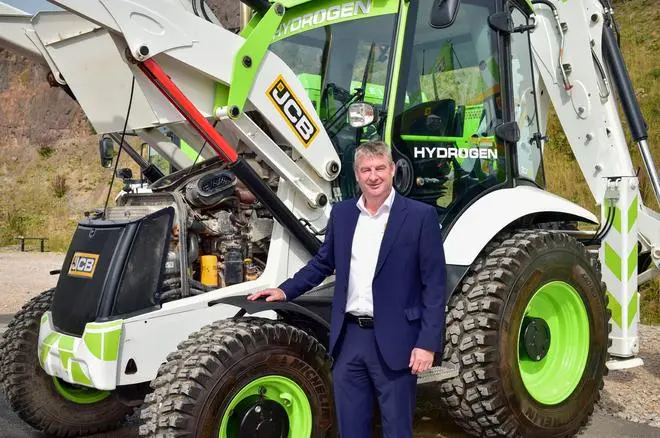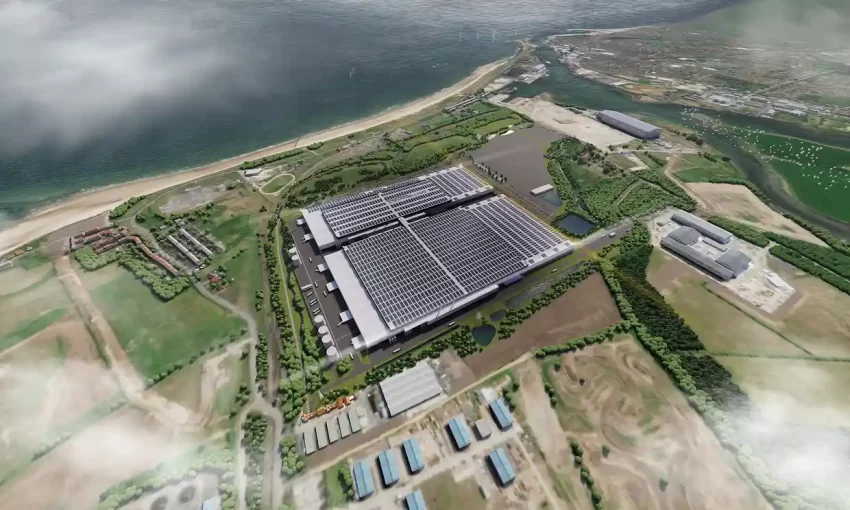British construction equipment company JCB is betting on hydrogen as the fuel of the future and it plans to bring it into India as well with its hydrogen powered engines that will drive the machines.
The company, which is the world leader in backhoe loaders with about 55 per cent market share, has developed a hydrogen based internal combustion engine. While it is still to be deployed commercially in the UK, it is already using them on a pilot basis on some of its off-road machines such as the backhoe loaders.
The advantage of hydrogen combustion engine, which works on the same principle as a normal diesel engine, is that it emits zero carbon and the only emission is water vapour.
The current Chairman of JCB, Lord Anthony Bamford, who is the son of the founder Joseph Cyril Bamford, is the prime driving force behind the construction machinery giant’s push into hydrogen. He sees it as the silver bullet for realising the UK’s target for achieving zero carbon emission by 2050.
Exploring alternative fuels
Bamford, who admits to being “wholly biased for India” told media persons at the company’s world headquarters in Staffordshire that India has no choice but to explore alternative fuels such as hydrogen to solve its energy problems and reduce dependence on imports.
Talking about the prospects of using hydrogen powered machinery in India, Bamford said, “We make 200 engines in India everyday. If we are making hydrogen engines commercially, we would be making them in India as well.” He said that it was difficult to put a timeline to it as the biggest obstacle to making hydrogen engines on a mass scale was sourcing the hydrogen for it.
Hydrogen is produced by splitting water and separating the elements but the process is expensive involving the use of electrolysers. In India, Reliance Industries, the Adani group and some others have announced ambitious plans to produce hydrogen on a commercial basis. RIL, for instance, plans to retail trying up with original equipment makers while it also has plans to make hydrogen through tie ups. Officials at JCB indicated that it was in talks with several companies including the Ambanis for green hydrogen production in India.

JCB’s Chief Innovation and Growth Officer Tim Burnhope with a hydrogen powered machinery
Chief Innovation Officer Tim Burnhope expects some development to take place for commercial production of its engines in the UK in the next 12-18 months while it is likely to showcase the product later this year in India.
JCB sells one in two construction equipment machinery in India and its highest selling product in India is the backhoe loader. Launched in 1979 it has become a key product in use at infrastructure projects in the country. India accounts for about a fourth of the company’s global revenues. It reported global revenue of 4.4 billion pounds in 2021 with sales of close to 100,000 units while profit before tax came in at 502 million pounds. Between 2001 and 2014 nearly 38 per cent of its total investments across the world was in India, which also accounts for half of its total global workforce.
Export hub
India has also become a significant country for the company as an export hub with about 45 per cent of what it makes in India being exported to around 130 countries world wide. The company has six manufacturing facilities across India. Last year it inaugurated one of its largest facility in Vadodara, Gujarat on a 47 acre land with an investment of 100 million pounds.
In its quest for cleaner fuel sources the company is also selling electric machinery but the costs are prohibitive as the weight of the batteries, the charging times outweigh the benefits. The company is also experimenting with hydrogen fuel cells, but again it is expensive, and there are technical challenges to be overcome.
(The writer is in London at the invitation of JCB)




